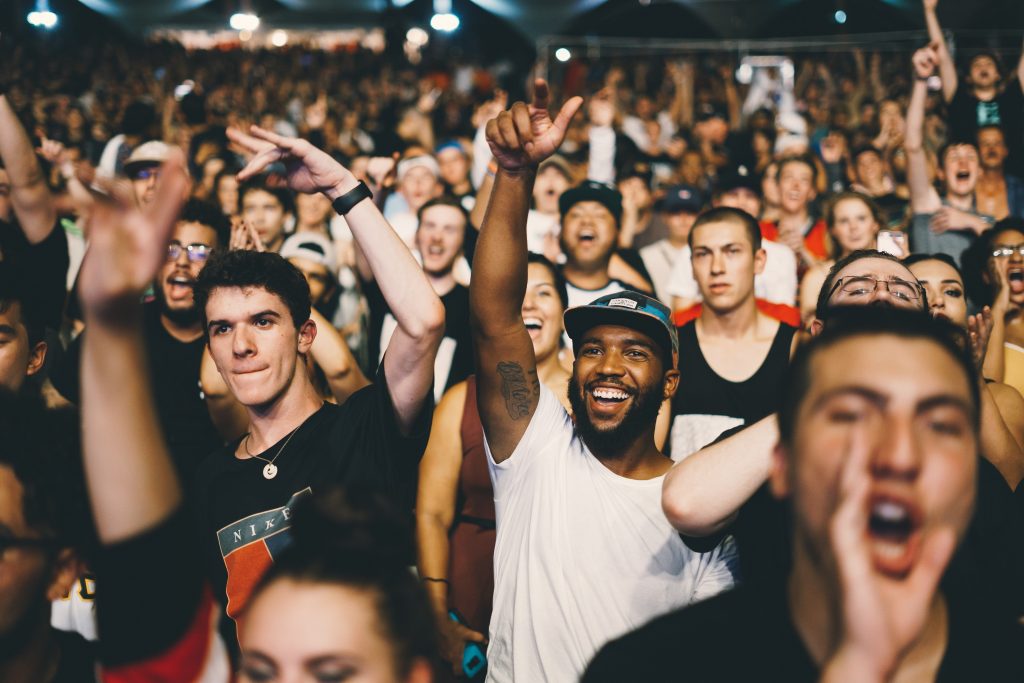 In April 2017, a young man attending a Travis Scott concert was left paralyzed after being pushed from a third-story balcony and then dragged on stage while the rapper performed at Terminal 5 in Manhattan. Subsequently, the man sued Mr. Scott and his manager, the concert promoter, which runs Terminal 5 and put on the show, and the security company for “negligence, carelessness and recklessness.”
In April 2017, a young man attending a Travis Scott concert was left paralyzed after being pushed from a third-story balcony and then dragged on stage while the rapper performed at Terminal 5 in Manhattan. Subsequently, the man sued Mr. Scott and his manager, the concert promoter, which runs Terminal 5 and put on the show, and the security company for “negligence, carelessness and recklessness.”
This is a high-profile example of what can happen when a concert gets too rowdy, and who may be considered liable for a concertgoer’s injuries. Depending on the type and cause of a concert accident, multiple parties may be responsible for what happened.
Types of Concert Accidents
Although concert venues often have many safety precautions in place, the large number of people in a small space, combined with alcohol and other factors, can be a recipe for disaster. Examples of ways that people may get injured at a concert include:
- Slipping and falling
- Falling down stairs
- Getting hit by a projectile
- Being hurt by other concertgoers
Injuries of this nature can occur when:
- Staff fails to clean up a spill.
- The building is not properly maintained.
- There is a lack of adequate security.
- There is a lack of proper lighting.
- There is a failure to have a detailed safety plan in place.
- The performers or staff are using defective equipment.
- The performer encourages dangerous behavior in the crowd.
Concert Accident Injuries
The man who was injured at the Travis Scott concert suffered fractured vertebrae, a broken left wrist, and a fractured right ankle, resulting in pain and suffering, lost wages, emotional damage, and medical expenses (New York Times.)
Spinal cord injuries, broken bones, lacerations, sprained or strained muscles, and head and neck injuries can all occur due to concert accidents. Seeking medical attention for an injury you received at a concert is important for two reasons. First, seeking immediate treatment will improve your chances of recovery, and a doctor may find injuries you did not even know you had. Second, a trip to the doctor’s office provides medical documentation of your injuries, so that no one can try to say that they didn’t occur or are not serious.
Concert Accidents and the Law
Concert accidents sometimes fall under the legal concept of premises liability. Premises liability is the responsibility of property owners to maintain a reasonably safe environment to prevent visitors to the property from becoming injured. A number of factors affect who is considered responsible under premises liability, including the condition of the property and the actions of both the owner and the visitor, and whether or not the owner had prior knowledge of the danger. In many cases, an additional determining factor is the status category of the injured person. Four distinct categories of visitors include the business invitee, the social guest, the licensee, and the trespasser. Each is accorded a slightly different duty of care—the highest duty for the business invitee, and the lowest for the trespasser. (Special rules apply to child trespassers.)
Many different parties play a role in the safety of a concert. The performer often has influence over the attendees’ behavior, the venue is responsible for the condition of the building and its fixtures, the promoter may be in charge of hiring the appropriate amount of vetted security, and of course, the security company is in charge of maintaining order.
For example, if a venue only hired two security guards for a 500-person event, and one of those security guards consumed alcohol on the job, neglecting his duties and failing to break up a violent fight, both the venue and the security company could be held liable for failure to provide a reasonably safe environment. The venue would have known ahead of time that the ratio of security guards to concertgoers was unsafe, and drinking alcohol clearly impaired the security guard’s ability to do the job.
In the Travis Scott case, any or all of these parties may have failed to do their job effectively, playing a part in the man’s resulting injury. After the man was injured, Travis Scott ordered security guards to drag him onstage, potentially injuring him further. No one from security, management, or the venue intervened.
What to Do After a Concert Accident
If you or a family member has been involved in a concert accident that left you with injuries, you should seek medical attention immediately. After that, you should contact a knowledgeable Dallas premises liability attorney who can work to prove liability and get the compensation you need to move forward.
Everyone has the reasonable expectation to attend a concert without suffering major injuries. The unfortunate reality, however, is that concert promoters and venues are businesses, and may cut corners and sacrifice safety to increase profits. When that is the case, you deserve to be compensated for their carelessness. Please call Crowe Arnold & Majors, LLP at toll-free (214) 231-0555 for a free consultation about your case.





